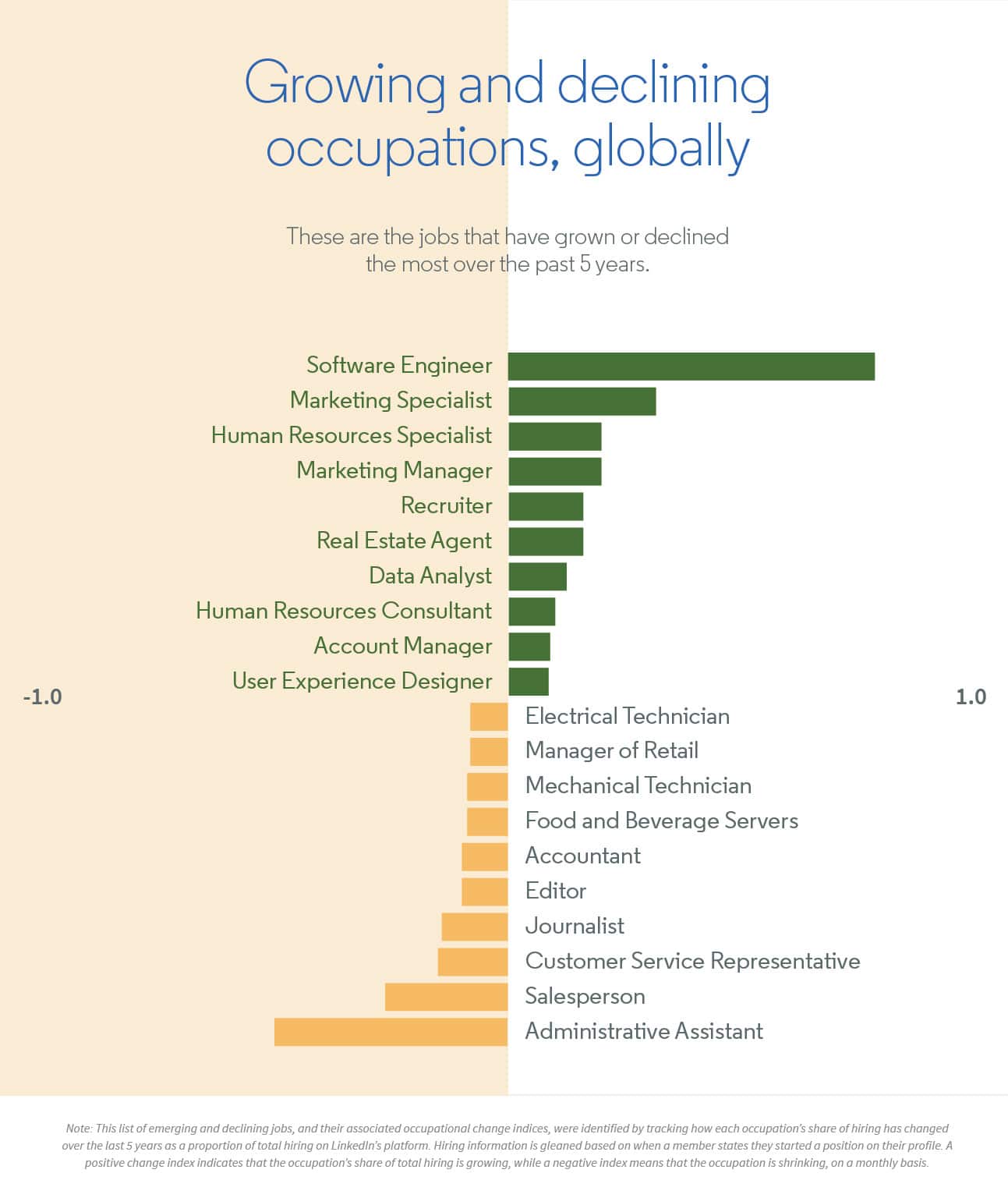Disruptive tech, the future of jobs – and the human recruiters caught in the middle
The verdict is clear: businesses can no longer bury their heads in the sand when it comes to artificial intelligence. In our special report, we analyse the findings – and ask why recruiters have been spared from the threat of replacement.
This week, the World Economic Forum (WEF) published its latest report, The Future of Jobs 2018. The study aims to balance opinions around the contentious issue of disruptive tech in the near future of work. Are we heading towards a tech utopia, or dystopia? A world with improved living conditions and more free time; or one where millions are rendered obsolete by machine automation?
The WEF takes a pragmatic perspective on an unusually emotive issue for the tech world. Balancing data on the past growth of disruptive tech, and placing it in the context of emerging trends, the report seeks to present a “most probable outcome” scenario for the medium-term future of work.
Using data from LinkedIn, the WEF study saw a 190 per cent increase in AI-related skills between 2015 and 2018. We’re all familiar with the LinkedIn hotshotters who add the latest skills buzzwords to their profiles to remain relevant. The WEF study discounted these self-promoters and counted only skills that are needed for the production, programming and creation of AI. No “AI consultants” or “cyber-gurus” were counted in this study.
Their conclusion? That disruptive tech like AI and automation will play an increasing role in tomorrow’s workplaces. And secondly, that a boom in “human-centric” professional roles is already on the horizon.
Growth, trends, opportunities
“The impact of AI is not just theoretical any more; it’s very much part of our present.” That is the WEF verdict. It is a claim that is hard to dispute. But how is this fact impacting our working habits? The WEF report shows that AI is powering innovation, and replacing humans in areas where computers excel.
Industries which have been quickest to adopt artificial intelligence have also undergone the most rapid changes. The WEF associates “change” with “innovation”, and suggests that AI is the engine that powers greater inventiveness.
The figures also identify AI world leading markets as America (USA), China, India, Israel and Germany. While the UK often positions itself as a pioneer in the field of AI actual skills, it appears, are less widespread. It leaves Great Britain as a distinctly second-tier player in the global race for automation talent.

We have looked at the importance of the digital transformation in the past. The WEF data tells us that it is no longer practical to ling to old processes and outdated systems. Technological modernisation is required just to keep pace. It is a warning that every recruiter should take note of – as we will see in the next finding.
Secondly, we find clear proof that, where AI can replace humans, it is replacing humans.
Professions which rely on skills that machines do well – administrative and data processing – are among the hardest hit by automation. Sales, accounts and admin departments have been decimated by the rise of the robots.
Perhaps surprisingly, recruitment is an industry enjoying a net gain in personnel numbers. It places recruiters alongside marketers and software developers as an industry where human skills are still paramount. But why is this?
Staking a claim in the future of jobs
Our relationship with intelligent technology is a complex one. One of the greatest ironies is that humans are very good at developing tech that is brilliant at doing what we are not so good at. Things like massive mathematical calculations; the flawless retention and instant retrieval of data.
On the other hand, things that are second nature to us – non-verbal cues, contextualisation of information – are incredibly difficult to program. The classic illustration of this would be the need for a human data analyst.
A computer can recall the raw data about every purchase made in a retail outlet. It can tell you where, when, and for how much each item was sold. But it cannot calculate the “why”.
It requires a human analyst to understand that (for example) umbrella sales increase when it rains. Recruiters, just like data analysts, operate in an information-rich industry.
Balancing automated processes with innately human talents will allow recruiters to future-proof their roles as we transform how we work. With recruitment software, improved reporting, and big data analytics, you are increasing the amount of time you can allocate to innovation – as well as those defining human traits that keep you vital to the industry.













